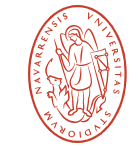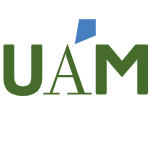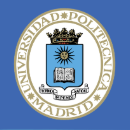Introduction
Universidad a Distancia de Madrid (Madrid Distance Education University) is a public university in Spain that focuses on distance education. It is committed to providing students with flexible, high-quality educational opportunities to obtain degrees through distance learning to meet the learning needs of different populations, especially those who are unable to attend traditional face-to-face courses.
Overview
Student size: There are approximately 62,000 students, a large student group from different regions and backgrounds, who achieve their learning goals through distance education.
Campus distribution: Although mainly based on distance education, there may be some institutions or centers in Madrid and other regions to support teaching and services to assist the development of distance education, the specific address is not clearly mentioned.
History and establishment time
The university was founded in 1992 by the then Minister of Education and Science, Gustavo Suárez Pertierra It was proposed to provide high-quality distance education services for Spain. It is the first university in Spain that specializes in distance education. Its development history reflects the continuous exploration and innovation in the field of distance education.
School Strength
Subjects and majors: It provides a wide range of disciplines and majors, covering law, economics and business, education, humanities, science and technology, health sciences and other fields, including law, economics, education, psychology, computer science, nursing and many other majors, providing students with a variety of learning options.
Teaching mode: It adopts advanced distance education technology, such as online learning platforms, virtual classrooms, multimedia resources, etc., so that students can learn anytime and anywhere. At the same time, the school also provides a wealth of learning support services, including online tutoring, study guides, electronic libraries, etc., to help students overcome the difficulties in distance learning and ensure that the teaching quality is equivalent to face-to-face education.
Faculty: It has a high-quality teaching staff. The teachers have rich teaching experience and professional knowledge, and can skillfully use distance education technology for teaching. They not only have in-depth research in the academic field, but also understand the characteristics of distance education and student needs, and provide effective guidance and support for students.
International cooperation: actively participate in international distance education cooperation and exchanges, establish cooperative relations with distance education institutions or universities in other countries, share educational resources, carry out joint projects, etc., enhance the school's influence in the field of international distance education, and provide students with a broader international perspective and learning opportunities.
Institutional nature
Public universities are committed to providing equal and open educational opportunities for the general public, and play an important role in the field of distance education.
Educational philosophy
Adhering to the concept of universal education and lifelong learning, it is believed that everyone, regardless of age, region, or background, can Students should have the right to receive higher education. Through distance education, the limitations of time and space can be broken, so that more people can obtain knowledge and improve their skills. It emphasizes student-centeredness, provides personalized education services according to students' characteristics and needs, and focuses on cultivating students' independent learning ability and innovative thinking, so that students can achieve self-development in a distance learning environment.
Key laboratories and disciplines
Key laboratories: Although there is no explicit mention of special key laboratories, the school has invested resources in information technology, educational technology, etc., and established technical platforms and facilities to support distance education. These can be regarded as a broad teaching and research support system to ensure the efficiency of online teaching, learning resource development, teaching management, etc. Carry out.
Key disciplines: Education, law, economics and other disciplines have certain advantages in the field of distance education. The school has invested a lot of energy in the design of distance education courses, innovation of teaching methods, and staffing of teachers in these disciplines, and has achieved good teaching results. It has cultivated a large number of professionals in related fields and has a high degree of recognition in society.
Department
The specific department settings are not clearly mentioned, but judging from the wide range of disciplines and majors it provides, the corresponding teaching units may be divided according to the major disciplines, such as law school, economics school, education school, humanities school, science and technology school, health science school, etc., to organize and implement teaching activities.
Ranking
The specific international or domestic ranking is not clearly mentioned , but it has a high reputation and influence in the field of distance education and is one of the important representative institutions of distance education in Spain.
Expenses
The specific tuition standards are not clearly mentioned, but as a public university, its tuition is relatively reasonable and may vary according to factors such as subject majors and course levels (undergraduate, master's, etc.). At the same time, the school may provide scholarships, grants and other funding policies to eligible students to reduce the financial burden of students.
Campus environment
Campus facilities: Since it mainly conducts distance education, the campus physical facilities are relatively less than traditional universities, but it has advanced distance education technology infrastructure, such as a stable online learning platform, data center, etc., to ensure the smooth progress of teaching activities. At the same time, the school may set up learning support centers or examination centers in various places to provide students with certain offline services and learning space.
Campus culture: Create a unique campus cultural atmosphere through online communities, virtual campus activities, etc., to promote communication and interaction between students and between students and teachers. The school encourages students to actively participate in online discussions, study groups and other activities to enhance students' sense of belonging and learning motivation, and cultivate students' teamwork spirit and independent learning awareness.
-

University of Navarra
-

Autonomous University of Madrid
-

Polytechnic University of Catalonia
-

CEU University of San Pablo
-

Technical University of Madrid
-

University of Lleida
-

University of Barcelona
-

University of Oviedo
-

University of Valladolid
-

University of Salamanca
-

Mesoamerican University
-

Istmo University
-

Mariano Galvez University of Guatemala
-

Regional University of Guatemala
-

Galileo University
-

Francisco Marroquín University
-

Rafael Landívar University
-

University of the Valley of Guatemala
-

University of San Carlos of Guatemala
-

Technological Institute of Tlaxcala Plateau
-

Golfo University
-

Technological University of South Sonora
-

Technological University of Huejotzingo
-

Tizimín Institute of Technology
-

Chilpancingo Institute of Technology

